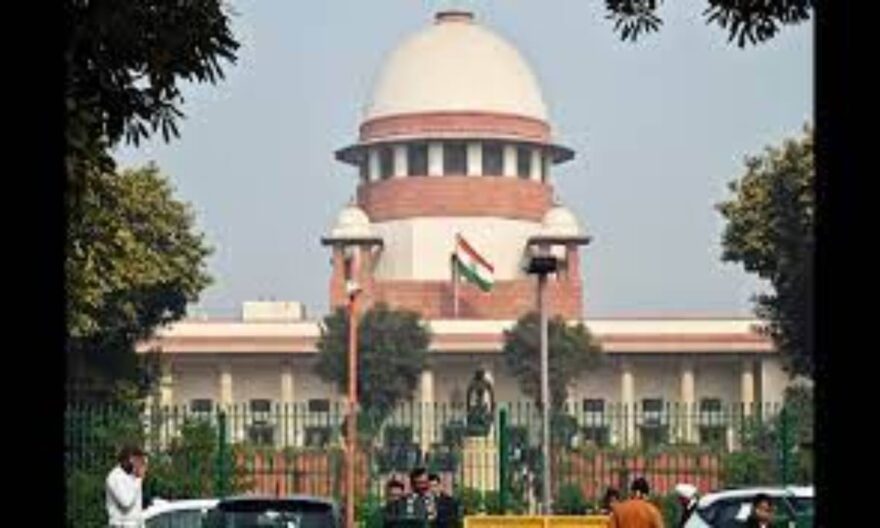
The Central government told the Supreme Court on Thursday that it is ready for the conduction of elections in the Union Territory of Jammu and Kashmir at any time now.
However, the precise scheduling of the elections hinges upon the deliberation and decision of both the Election Commission of India and the State Election Commission.
The court is hearing a batch of petitions challenging the abrogation of Article 370.
Solicitor General Tushar Mehta, representing the Centre, appeared before a 5-judge Constitution bench led by Chief Justice of India DY Chandrachud.
Mehta elucidated that the ongoing process of updating the voters’ list in Jammu and Kashmir is in progress and is anticipated to conclude within the span of approximately one month.
Solicitor General told the Constitution bench hearing pleas against abrogation of Article 370, “Central government is ready for elections any time now.”
“To date, updating of voters list was going on, which is substantially over. Some part is remaining, that the Election Commission is doing,” SG told the bench also comprising Justices Sanjay Kishan Kaul, Sanjiv Khanna, BR Gavai and Surya Kant.
Furthermore, the Solicitor General stated that the State Election Commission and the Election Commission of India will take a call together on the time for elections.
SG told the bench that, 3-tier elections are to be held. For the first time, the 3-tier Panchayat Raj system is introduced. First, elections would be for Panchayats.
Legislative elections in Jammu & Kashmir are likely to be held after Panchayat polls, and municipal polls, stated the government.
Also, the Centre stated that it is unable to give a specific timeline for restoring the Statehood status of Jammu & Kashmir but clarified that Union Territory status is temporary.
Solicitor General told the bench, “I am unable to give an exact time period for complete Statehood while saying Union Territory status is temporary.”
On the last date of the hearing, the apex court observed, “restoration is important” and asked the Centre to give a definite timeline for Statehood and elections in the region.
Centre told the bench that steps are being taken by the Central government for the Statehood of Jammu & Kashmir and these steps can be taken only if it is a UT.
He stated, the developments are taking place for it to become a complete State.
SG explained the various steps taken by the Centre stating terrorist instances that have reduced by 45.2% compared from 2018 to 2023 and infiltration reduced by 90%. Law & order issues like stone pelting etc. reduced by 97%.
He stated, Security persons casualty is reduced by 65%.
He also presented figures, citing the reduction of stone pelting incidents from 1767 cases in 2018 to nil at present. The Solicitor General emphasized, youth who are now gainfully employed, a shift from their prior association with secessionist forces. Additionally, instances of organized strikes, numbered 52 in 2018, and now it is nil.
Mehta stated, in 2022, 1.8 crore tourists visited and in 2023, 1 crore tourists have visited.
On the other hand, senior advocate Kapil Sibal, appearing for one of the petitioners against abrogation of Article 370, stated that the government has 5,000 people under house arrest, section 144 imposed, the internet was shut off, and people couldn’t go to hospitals even.
He stated, “Let us not make a mockery of democracy, and not talk about bandhs etc.”
Chief Justice DY Chandrachud clarified the court’s stance, asserting that its focus remains on determining the constitutional grounds of the abrogation of Article 370, that matters pertaining to elections or statehood won’t affect that determination.
On the last date of the hearing Centre told top court that the status of Jammu & Kashmir as a Union Territory is only temporary and will be restored to Statehood, however, Ladakh would remain a Union Territory.
Currently, the Constitution bench is hearing a batch of petitions contesting the abrogation of Article 370 and the bifurcation of the state into two Union Territories.
On August 5, 2019, the Central government announced the revocation of the special status of Jammu & Kashmir granted under Article 370 and split the region into 2 Union territories.




